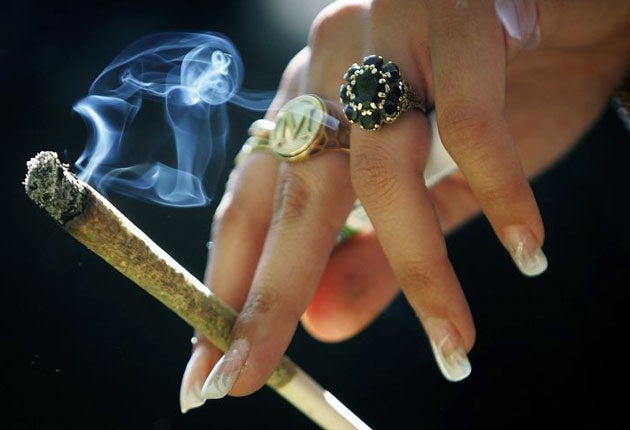Scientific adviser backs sacked drug 'tsar'

The Government’s chief scientific adviser said today that he agreed with the sacked drugs “tsar” Professor David Nutt when he said that cannabis is less dangerous than alcohol and cigarettes.
Professor John Beddington, the most senior scientific adviser in Whitehall, said that the scientific facts support the view that alcohol and tobacco are more dangerous than cannabis, which the Government has upgraded from a class C to a class B drug, putting it on a par with amphetamines.
Asked in an interview with the BBC whether he agreed with Professor Nutt’s view that cannabis was less harmful than cigarettes and alcohol, Professor Beddington said: “I think the scientific evidence is absolutely clear cut. I would agree with it.”
However, Professor Beddington would not be drawn on whether the Home Secretary Alan Johnson was right to sack Professor Nutt from his post as chairman of the Advisory Committee on the Misuse of Drugs (ACMD) for repeatedly stating that it was wrong to ignore the scientific evidence by upgrading cannabis to class B.
“The key thing here is that there has been a breakdown in communication between the Home Secretary and Professor Nutt and that is to be regretted. The Home Secretary clearly has no trust in Professor Nutt and I can't see how that could go on,” Professor Beddington said.
There are more than 75 scientific committees advising goverment on a range of issues and all but one of these committees is working well with the advice being accepted by the Government, he said.
“This has been a single instance where there has been a problem. In my two years in government there has only been an instance about the ACMD,” Professor Beddington said
“The government should take into account scientific advice where it is given even when that advice is not a complete consensus, if there is disagreement between scientists, but the government needs to take that into account,” he said.
“But of course there are other considerations and it needs to be clear, when governments go against scientific advice, what is the basis for going against that advice because it is perfectly proper that there are other considerations. I think it's important to get transparency in these issues,” Professor Beddington said.
Join our commenting forum
Join thought-provoking conversations, follow other Independent readers and see their replies
Comments
Bookmark popover
Removed from bookmarks